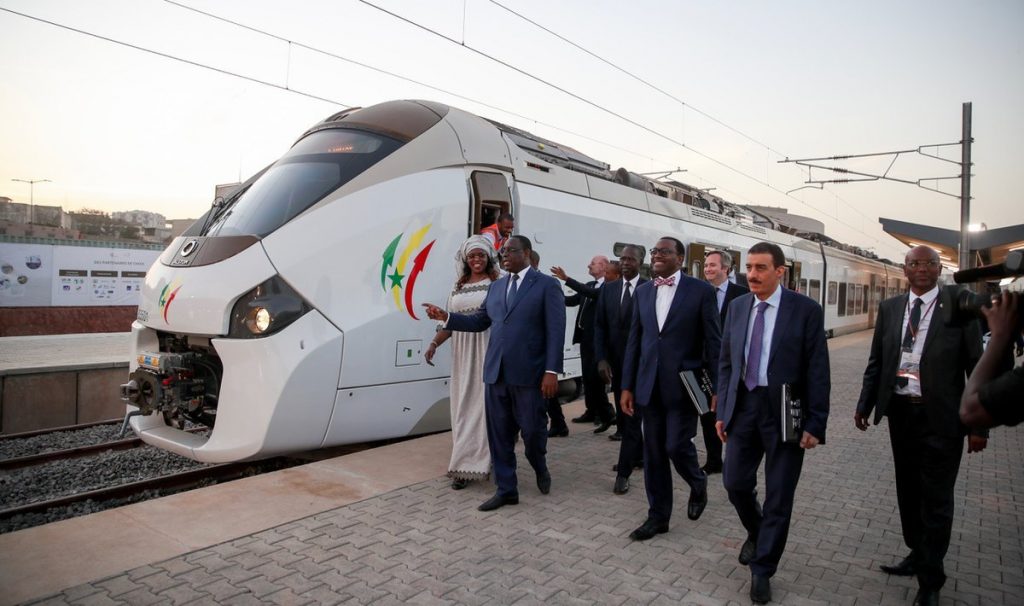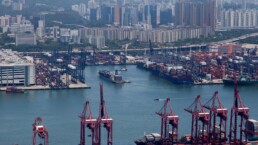Image: AFP
As is often the case, I was scrolling through Twitter on my morning commute to the office, when I came across a column by Célestin Monga, the brilliant Vice President and Chief Economist of the African Development Bank Group. He argued that leaders across the African continent are quietly “undergoing something of a revolution when it comes to economic policymaking.” He was referring to the assertive decisions on economic and political issues made recently by African leaders. This is indicative of a much larger movement that has seen Africans, in all spheres of life, take charge of their own affairs without constantly looking to the outside world for validation or help. There is also an increased sense of confidence on the global stage that goes far beyond politics and into other sectors like music, film and literature. This piece, however, focuses on the governance aspect of this movement and how it impacts economic growth and development on the continent.
Governance
Broadly speaking, governance on the continent is improving, with several countries becoming more democratic. As indicated by the 2018 Ibrahim Index of African Governance, “…public governance in Africa remains on average on a moderate upward trajectory…three out of four African citizens live in a country where public governance has improved over the past 10 years…and 34 out of 54 African countries have improved in Overall Governance over the past decade”. In spite of these improvements, there is still universal agreement among all stakeholders that progress is not happening quickly enough, due to the incremental nature of the improvements.
The increased political stability across the continent has, among other things, afforded its leaders more room to provide support to other African countries and citizens. Many were pleasantly surprised in 2017 when Senegal, Nigeria and the rest of the Economic Community of West African States (ECOWAS), took it upon themselves to resolve a political impasse in The Gambia. The successful ECOWAS intervention demonstrated the growing geopolitical influence of these countries and their ability to take action without waiting for, or depending on, the international community. In this instance, the international community followed Africa’s lead and eventually backed the intervention when it had already been planned. The UN Secretary-General’s spokesman later declared that “the U.N. supports regional efforts aimed at resolving the crisis peacefully.”
Policy Space & Independence
Academics like Prof. Robert Wade have asserted that between neoliberal international trade rules, constrained macroeconomic frameworks and intellectual property laws, developing countries are left with very little space to formulate their own policies on trade, investment and industry. The predominant argument is that despite having gained independence in the mid-1950s and 1960s, African countries have failed to truly carve out enough clout to make their own political and economic decisions, without undue interference from donors and international organisations in the Global North.
However, to continue to hold this view as conventional wisdom would be to ignore the fact that there has been a paradigm shift in the last decade, thanks in part to high economic growth rates and the emergence of China as an alternative donor. As noted by the 2011 edition of the African Economic Outlook, there is mounting evidence that African countries’ economic cooperation with China has yielded some positive social and economic returns. Despite this, influential scholars and politicians in the West continue to insist that African governments need to be wary of China’s growing influence. They point to recent reports of opaque partnership agreements in Zambia that allegedly led to a transfer of resources and ownership of national assets to China. Even though this particular story has been disputed, it remains a cautionary tale for African governments.
It is important to point out though, that according to some experts, “…African governments have won policy space, or in plain English, the ability to make decisions to pursue their self-defined development objectives” as a by-product of their new economic partnerships with China. This slow demise of the previously oligopolistic official development assistance (ODA) system has reduced dependency on the international community and given African leaders a higher degree of confidence when forging new partnerships and renegotiating older ones. In addition, strong economic growth on the continent has played a key role in promoting the continent’s self-reliance. On average, Africa has enjoyed a sustained period of exceptional economic growth, despite relatively sluggish growth rates in recent years. According to the AfDB African Economic Outlook 2019, “Africa’s economy recovered with 3.6 percent growth in 2017 and 3.5 percent growth in 2018…in 2019, 40 percent of African countries are projected to see growth of at least 5 percent”. Some leaders, such as President Paul Kagame and President Macky Sall, have even used this new dynamic as an opportunity to encourage competition between old and new donors, while securing the best deal for their development. It is my belief that the combination of these factors have led to the “inaudible revolution” that is happening before our very eyes today.
A notable example of this paradigm shift is the United States’ lesser known trade dispute – the one with Rwanda, over second-hand clothing and the rules of the Africa Growth and Opportunity Act (AGOA). In an attempt to boost the local garment industry in Rwanda, which has been growing steadily, due to Chinese investments and its National Industrial Policy, President Paul Kagame banned the importation of second-hand clothes from the United States. The Trump administration retaliated by imposing tariffs on clothing exports from the tiny East African nation. In the past, this move would have forced Rwanda to change its policy, but President Kagame insisted that the ends will eventually justify the means. His response surprised many, especially because his East African neighbours, Kenya, Tanzania and Uganda backtracked after taking similar steps to ban used clothing. Due to market liberalisation and the proliferation of second-hand clothing imports, once lucrative textile industries across the continent have dwindled – arguably contributing to the premature deindustrialization trend.
The jury is still out on whether or not Kagame’s move will fundamentally benefit the people of Rwanda, but it has shown the willingness and courage to stand up to the Global North. For many observers, the ban and the Trump administration’s subsequent response inadvertently exposed the fact that African countries do indeed lose policy space and independence when they sign up to trade agreements like AGOA, despite their theoretically well-branded titles and objectives.
Reforms: A New Mindset
Improvements in governance have come as a direct result of reforms across Africa on the national, regional and continental level. These reforms, in time, will lead to more fundamental structural changes. Nowhere is this more apparent than in Ethiopia, where the new Prime Minister, Dr. Abiy Ahmed, has been hailed as a reformist leader who is gradually ameliorating the East African country’s image and governance structure. Last year, Dr. Ahmed made history by appointing Ethiopia’s first female president, shortly after appointing a cabinet made up of an unprecedented number of women.
This news became a headline for many international media outlets, helping to slowly redefine Ethiopia’s brand and attract new foreign direct investment (FDI). The International Monetary Fund (IMF) announced in September 2018 that it had seen an increase in FDI into Ethiopia. The Fund also believes that this increase is as a result of the conducive political climate that has been created by the Prime Minister. Often times, the perception of risk for investing in African countries is simply based on reports from the IMF and The Economist’s publications. Therefore, favourable news on Africa goes a long way to facilitate the inflow of requisite capital for development.
Based on their analysis, The Economist sees a promising future for the Sub-Saharan Africa region, but they call for more “structural reforms [that] will help to bolster economic activity, along with ties with faster-growing economies in Asia.” The President and Prime Minister of Ethiopia are working towards doing exactly that – pushing for structural reforms, while strengthening Ethiopia’s cooperation with China, in pa rticular. Consequently, there has been a complete transformation in the attractiveness, and perceived risk of investment in Ethiopia.
There are several other examples of leaders working to change mindsets and reinvent their country’s image. President Nana Akuffo-Addo, in an effort to be more independent and drive economic transformation, announced a number of policies early in his presidency that will drive the “Ghana Beyond Aid” agenda. Similar to President Kagame, President Akuffo-Addo sees a need to build a country “…which looks to the use of its own resources [and] build an economy that is not dependent on charity and handouts”. On the continental level, led by President Kagame as chairman, the African Union (AU) is in the middle of a reform process which should see the organisation become self-sufficient and more effective. In addition to that, the AU is currently working to create a $4 trillion single market that will enhance free movement and trade between African countries. So far, 19 countries have signed and ratified the trade agreement, leaving only five more to trigger the Continental Free Trade Agreement (AfCFTA). At the moment, prominent leaders in the AU are lobbying to secure those five ratifications before the 32nd Ordinary Session of the Assembly of the African Union on 10-11th February in Addis Ababa. The reforms and the AfCFTA are important for many reasons, but chief among them is the need to unite, in order to be less reliant on external support, which policymakers believe will drive economic transformation from Cairo to Cape Town.

The Ultimate Goal – Economic Transformation
Ultimately, the goal of this strategic shift, in pursuit of sovereignty, is to be able to reduce poverty for people all over the continent. Therefore, it is imperative to conclude with a look at how African leaders have used this new found confidence and policy space to do just that. President Macky Sall and his “Plan Sénégal Émergent” is a fitting place to start, given its recent successes. The primary priority of President Sall’s plan is to bring about a structural transformation of the economy, partly by developing new wealth-creating sectors that drive economic growth and job creation. Two instrumental parts of this plan – the $44 million industrial park in Diamniadio, that will eventually create 23,000 jobs, and the Dakar Regional Express Train (TER), which will provide a high-speed route between the capital city and Diamniadio – were inaugurated the last three months. These projects are expected to accelerate the industrialisation process in Senegal, thus, creating opportunities and prosperity in the long-run. This provides a compact snapshot of what is possible when African leaders have the ability and space to devise their own development plans and projects.
Suffice it to say that there are still significant challenges remain in both governance and the implementation of development policies in Africa. Politically, leaders on the continent need to recognise that they face possible obstacles on two fronts. Internally, political capture can turn any serious attempt at economic transformation into an instrument of wealth transfer to politically connected elites and firms. This was the case with Jacob Zuma in South Africa, which led to political instability, economic unpredictability and it eventually derailed his presidency. In terms of external relations, African countries need clear strategies for dealing with bilateral and multilateral partners. Policymakers have already begun drafting these strategies and integrating them into their development plans. This is indeed a welcome development that will prove crucial in ensuring that engagement with both traditional and emerging partners are for the sole purpose of driving economic transformation.
These efforts to manage internal and external political forces are only the first step though, in view of the fact that implementing structurally transformative policies also requires shrewd economic policymaking. Firstly, it is essential to develop realistic strategies to improve the business environment, but only when it is in line with the long-term strategic goals of the country’s development plan. It is confusing to both investors and implementation teams when leaders are inconsistent with their policies. Policy clarity, coherence and consistency will attract essential investment in productive sectors, which will be indispensable in creating jobs and diversifying economies across the continent. Secondly, African governments must prioritise capacity-building in order to competently implement some of the ambitious development plans that they have formulated in recent years. Lastly, establishing a coordination mechanism and a delivery team, that are both under the direct supervision of the president or prime minister’s office, will ensure enhanced implementation of key development projects.
It is encouraging that these measures are already being considered and are being applied in several African countries. However, in an effort to continue forging a larger, more permanent role for Africa on the global stage, further structural reforms are needed to strengthen governance and drive economic transformation. Given the changing global political landscape and expected global growth slowdown, it is more important than ever for the African Union and its member states to continue strategising, in a multilateral manner, to position the continent in the pursuit of its individual and collective interests.
The views expressed in this article are those of the author alone and not the Future Africa Forum.
The views expressed in this article are those of the author and do not necessarily reflect the views of Future Africa Forum. Future Africa Forum is a pan-African policy think-tank and policy advisory consultancy headquartered in Nairobi, Kenya.



